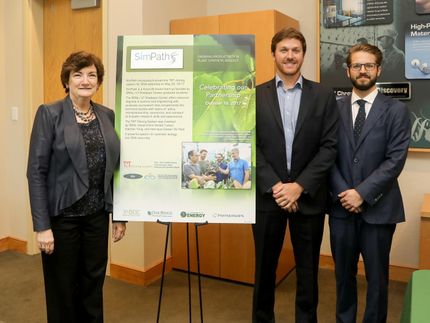European Investment Fund and K.U.Leuven invest 16 million euro in Centre for Drug Design and Discovery
Advertisement
The Katholieke Universiteit Leuven and the European Investment Fund (EIF) are investing an additional 16 million euro in the Centre for drug design and Discovery (CD3), thereby increasing the total capital of CD3 to 24 million euro.
CD3 allows fundamental innovative biomedical research carried out by universities and small biotech companies to be translated into promising new medicines. CD3 aims to develop the potential new medicines to a stage where the pharmaceutical and biotech industry are interested in either licensing the technologies developed or in undertaking collaborations with the project partners. The newly developed technologies can also form the basis for spin-off companies.
“In the past four years, together with its partners, CD3 has taken the initial steps in more than 15 projects in order to develop potential new medicines for various disorders, such as AIDS, cancer, arthritis, asthma, Dengue virus infections and Alzheimer’s disease”, says Patrick Chaltin, Managing Director of CD3.
“CD3 has been very successful in bridging the gap between academic innovative research and the needs of the pharmaceutical industry which culminated in several license agreements, including with leading pharmaceutical companies. This 16 million euro capital increase will also allow us to expand our activities outside of K.U.Leuven”, Paul Van Dun, General Manager of K.U.Leuven Research & Development (LRD), adds.
CD3 has been set up in October 2006 as an investment fund and technology transfer platform for innovative small molecule drug discovery with a starting capital of 8 million euro. The decision to make a new contribution to the CD3 fund, bringing its total capital to 24 million euro, is based on CD3’s successes of the past four years, as well as on a growing need for an investment fund in the life sciences field.






















































